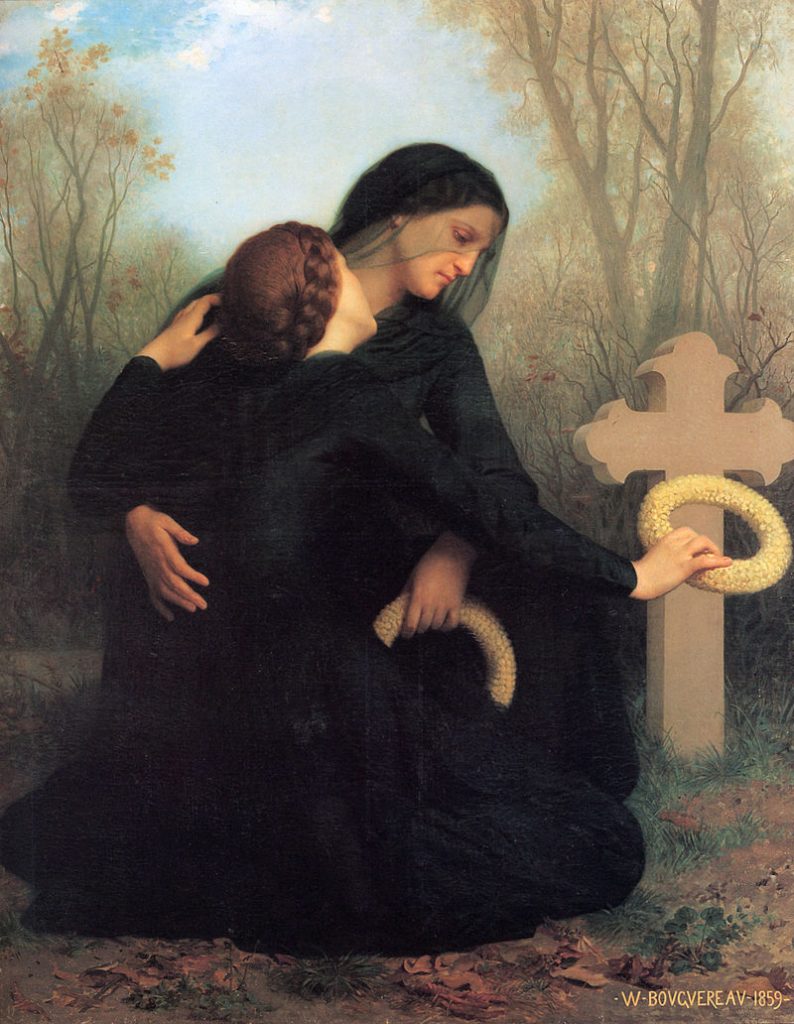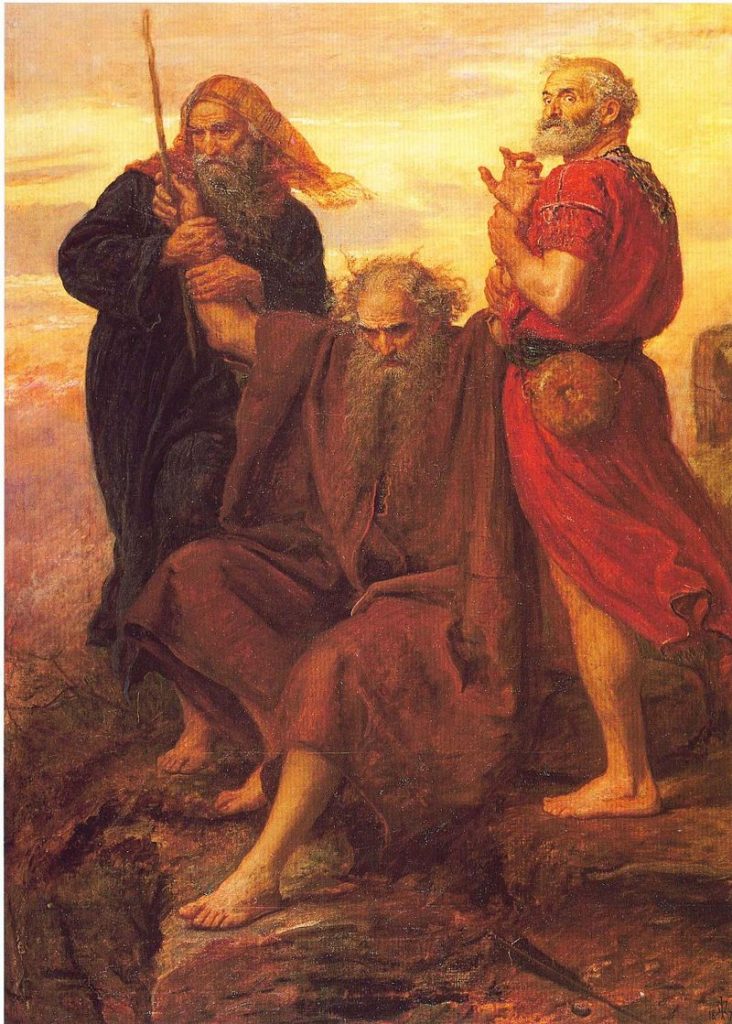
* * * *
Welcome to Halloween 2020. Which as it turns out, is a Halloween Like We’ve Never Seen!
With the convergence of a full moon, a blue (Hunter’s) Moon [seen below left], daylight saving time and Saturday celebrations — plus the unprecedented events of this year — Halloween 2020 will truly be one to remember.
See also Halloween: CDC says no trick-or-treating amid COVID. (“Many traditional Halloween activities can be high-risk for spreading viruses.”) On the other hand, there is also that election coming up three days later. Not to mention the article with the photo at the top of the page:
While the presidential election, economic recession and ongoing coronavirus pandemic have made 2020 a notoriously bad year for many, [James] Worsham has felt personally targeted with his bad luck: A March tornado destroyed his work studio and then the pandemic, as well as an insurance nightmare, forced him to close his business for four months… Yet, despite it all, he has managed to keep up a positive attitude.
On that note, we’ll return to some “tradition.” Like from last year when I posted The Halloween Triduum – 2019. Which led with a news flash: That Halloween isn’t just one day. It’s part of a “Triduum.” It’s one part of the “three days of Hallowe’en.” (Referred to as Allhallowtide. And Triduum is just a fancy Latin word for “three days.”)
“Hallowe’en” came from the Old English word for “saint,” halig. (All Saints Day, November 1, was originally “All Hallow’s Day.”) Wikipedia noted that this three-day period is a “time to remember the dead. That, includes martyrs, saints, and all faithful departed Christians.” The main day of the three is November 1, now “All Saints Day,” previously referred to as Hallowmas.
It all started with an old-time belief that evil spirits were most prevalent during the long nights of winter. People back then thought the “barriers between our world and the spirit world” were lowest and most permeable the night of October 31:
So, those old-time people would wear masks or put on costumes in order to disguise their identities. The idea was to keep the afterlife “hallows” – ghosts or spirits – from recognizing the people in this, the “material world.”
You can see more about Halloween in that 2019 post. (And links therein, including but not limited to On the THREE days of Hallowe’en, from 2017. and On “All Hallows E’en” – 2016.) They include details of a strange ghostly light called ignis fatuus. (From the Medieval Latin for “foolish fire.”) That is, the “atmospheric ghost light seen by travelers at night, especially over bogs, swamps or marshes. It resembles a flickering lamp and is said to recede if approached:”
Or about the danger of traveling on All Hallows E’en.
If you were out from 11:00 p.m. to midnight, your had to be very careful. If your candle kept burning, that was a good omen. (The person holding the candle would be safe in the upcoming winter “season of darkness.”) But if the candle went out, that was “bad indeed.” (The thought was the candle was blown out by witches…)
But next comes November 1, All Saints Day. It honors “all the saints and martyrs, both known and unknown” who have gone on before us. I.e., special people in the Church. (A saint is defined as one “having an exceptional degree of holiness,” while a martyr is someone “killed because of their testimony of Jesus.”) Which leads to one prayer from an All Saint’s link:
Almighty God, who by your Holy Spirit have made us one with your saints in heaven and on earth: Grant that in our earthly pilgrimage we may always be supported by this fellowship of love and prayer, and know ourselves to be surrounded by their witness…
On the other hand, November 2 – All Souls’ Day – honors “all faithful Christians … unknown in the wider fellowship of the church, especially family members and friends.’” In other words, the rest of us poor schmucks. (Those who will die but likely not be remembered, much.)
That is, that third day of the Halloween Triduum – November 2 – is All Souls’ Day. The original idea was to remember the souls of “the dear departed,” illustrated by the painting below. Observing Christians typically remember deceased relatives on the day, and – in many churches – the following Sunday service includes a memorial for all who died in the past year.
All of which makes the Good News of Halloween. (I.e., we “know ourselves to be surrounded by their witness,” the witness of the departed.) Accordingly, here’s wishing you:
A Happy “All Hallow’s E’en!”
* * * *

* * * *
The upper image is courtesy of Halloween 2020 – Image Results. The image accompanies an article, posted on October 24, “Man thinks of ‘the scariest thing’ for his Halloween 2020 decor.” Which led to an article about the “blue moon:”
Get ready, witches and warlocks. This October 31, there’s a full moon occurring in Taurus, and it’s extra special. This lunar event is called a “blue moon” because it’s the second full moon we’ll experience in the month of October. Not, it won’t actually appear blue, but it’s rare — hence the phrase “once in a blue moon” — and astrologically, very powerful.
The lower image is courtesy of All Souls’ Day – Wikipedia. The caption: “All Souls’ Day by William Bouguereau.” See also Allhallowtide, and All Saints’ Day – Wikipedia. My original caption, from Triduum – 2019, was “The ‘Three Days of Halloween‘ end November 2, with All Souls’ Day.”






/https://www.thestar.com/content/dam/thestar/sports/hockey/2020/09/29/how-social-media-reacted-after-the-tampa-bay-lightning-lifted-the-stanley-cup/kucherov.jpg)